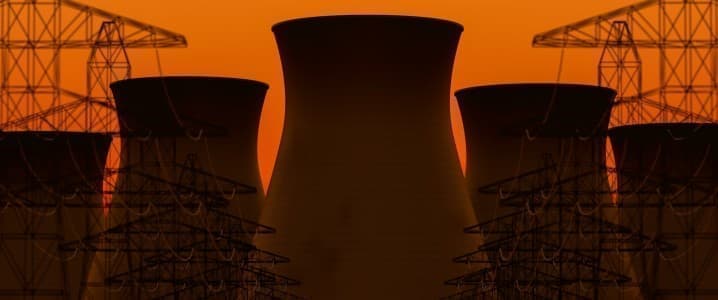Now Reading: Europe Reconsiders Nuclear Energy Policies
-
01
Europe Reconsiders Nuclear Energy Policies
Europe Reconsiders Nuclear Energy Policies

A growing number of European countries, such as Italy, Spain, and Denmark, are reconsidering their bans on nuclear power due to energy security concerns and challenges with integrating renewable sources into the grid. While solar and wind energy are still crucial in Europe’s energy transition, the intermittent nature of these sources and grid integration issues are prompting a closer look at nuclear energy, particularly small modular reactors.
The shift towards nuclear energy in Europe is motivated by a desire for energy independence, responses to recent energy market volatility, and the necessity for a stable energy supply during the development of renewable energy infrastructure.
The move towards nuclear energy in Europe represents a significant change. Even countries that have been traditionally opposed to nuclear power are relaxing their restrictions in favor of this carbon-free energy source. This shift is part of the continent’s efforts to reduce reliance on oil and gas imports and achieve greater energy independence in response to recent events like Russia’s invasion of Ukraine and the subsequent European energy crisis.
Italy recently took a major step towards overturning its 40-year ban on nuclear power, while Spain and Denmark have also signaled their willingness to reconsider their nuclear policies. Germany, a longstanding opponent of nuclear energy, has agreed to drop its opposition to nuclear power in EU legislation in collaboration with France. This change in stance has been described as a significant policy shift that will streamline energy policymaking within the EU.
While solar and wind energy are cheaper alternatives for power generation, challenges have arisen with their integration into European grids. The rapid expansion of renewable resources in some regions has led to issues such as power grid failures. Price volatility in European energy markets has also been observed, with occasional drops below zero impacting investment in renewable energy capacity expansion.
Despite these challenges, solar and wind energy remain crucial for Europe’s energy independence and climate goals. However, there is a growing interest in exploring the potential role of new nuclear technologies, particularly small modular reactors, as a complementary energy source while renewable energy grids continue to develop.
Leadership in Europe acknowledges the importance of solar and wind energy in driving the transition towards green energy but recognizes the need to assess whether new nuclear technologies can support these efforts. The focus is on the development of small modular reactors, which offer advantages for countries lacking recent experience in nuclear power production and expertise.
Overall, the renewed attention to nuclear power in Europe reflects a shift towards greater energy independence and a more diversified energy mix that balances the benefits of renewable energy sources with the reliability of nuclear power.






